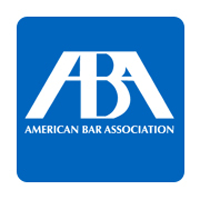Dept. of Ed seeks to toss ABA suit on loan forgiveness, says nothing final till 10 years of payments

The U.S. Education Department is seeking to toss an American Bar Association lawsuit over lawyers dropped from the Public Service Loan Forgiveness program by arguing that the ABA sued too soon.
In a motion for summary judgment filed Monday, the Education Department says that determinations of eligibility for loan forgiveness aren’t final agency actions subject to court review until the borrowers make 10 years of loan payments.
Any interim determinations of eligibility are nonbinding, provisional guidance, the motion says.
The Public Service Loan Forgiveness program permits people who work in certain nonprofit and public service jobs to have the balance of their loans forgiven after working in such jobs for 10 years and making 120 on-time payments.
The ABA sued in December on behalf of four lawyers, including two former ABA employees, who were told their eligibility for the program had been revoked. In explaining its new decision, the department told the lawyers it had determined that their employers—the ABA, Vietnam Veterans of America and the American Immigration Lawyers Association—did not qualify under the program as public service organizations that provide public and legal education.
The ABA filed a motion for summary judgment in May that asks a judge to require the department to stop issuing retroactive denials and to restore the individual plaintiffs’ eligibility for the program.
The Education Department says there were some mistakes in individual, interim notifications to borrowers, and they have been corrected. It is wrong to characterize those corrections as changed interpretations or new policies applied retroactively, the department’s motion says.
The Education Department also argues the ABA should be dismissed from the suit because its claimed injury doesn’t fall within the zone of interests protected by the loan forgiveness statute, and says its determinations of qualifying public service jobs are reasonable.
“It is reasonable to impose the limitation that a private organization that ‘provides … public services’ must be primarily in the business of providing public services, lest the regulation sweep too broadly to include private organizations for which the provision of public services is only a small part of their operations,” the Education Department argues.
In keeping with that limitation, the Education Department has tentatively determined that the ABA has not demonstrated its primary purpose is public service work, the department says.
ABA President Linda Klein issued statement in response to the DOE filing: “It is outrageous that the department refuses to acknowledge its mistakes. Thousands of young people—teachers, engineers, lawyers, doctors and more—made major life decisions based on inaccurate information provided by the department and its contractor. They took jobs and moved their lives based on this information. The plaintiffs followed the rules and are now paying a steep price for the department’s mistakes.
“The department now requires participants to make loan payments for 10 years, then wait to see if they qualify for loan forgiveness. The department minimizes both their errors and the price paid by the plaintiffs for those mistakes. That’s unfair. We intend to hold the department accountable.”


